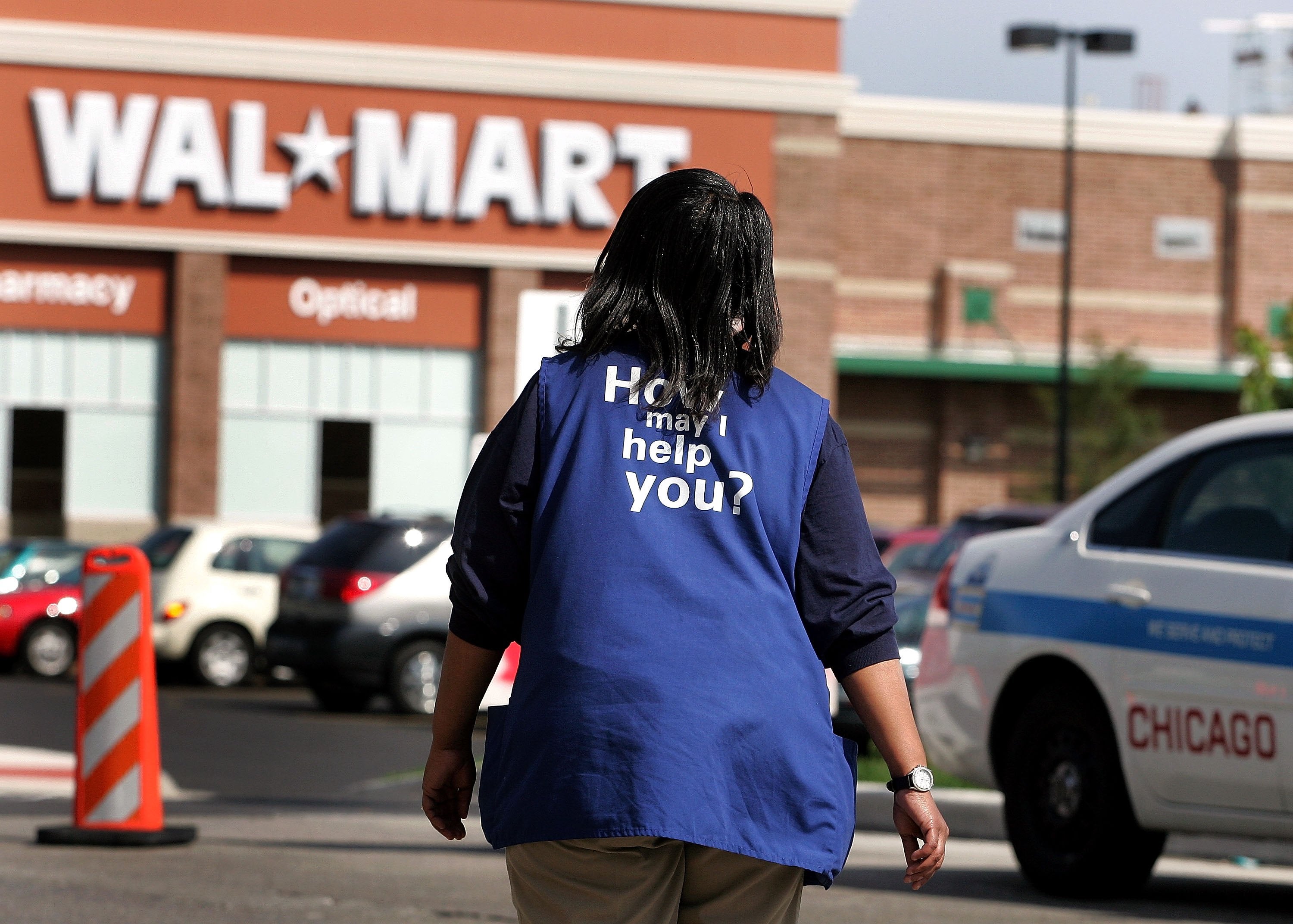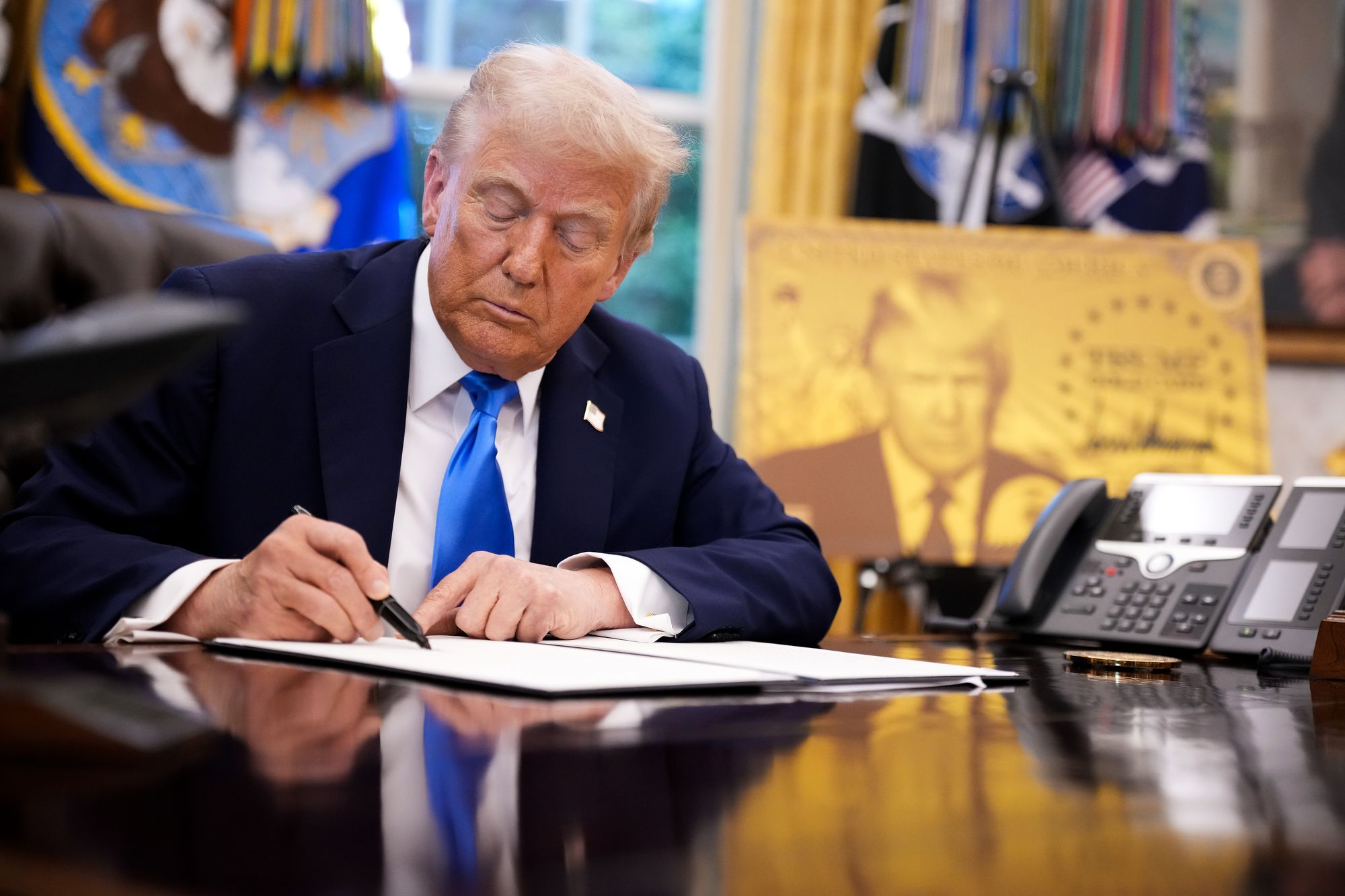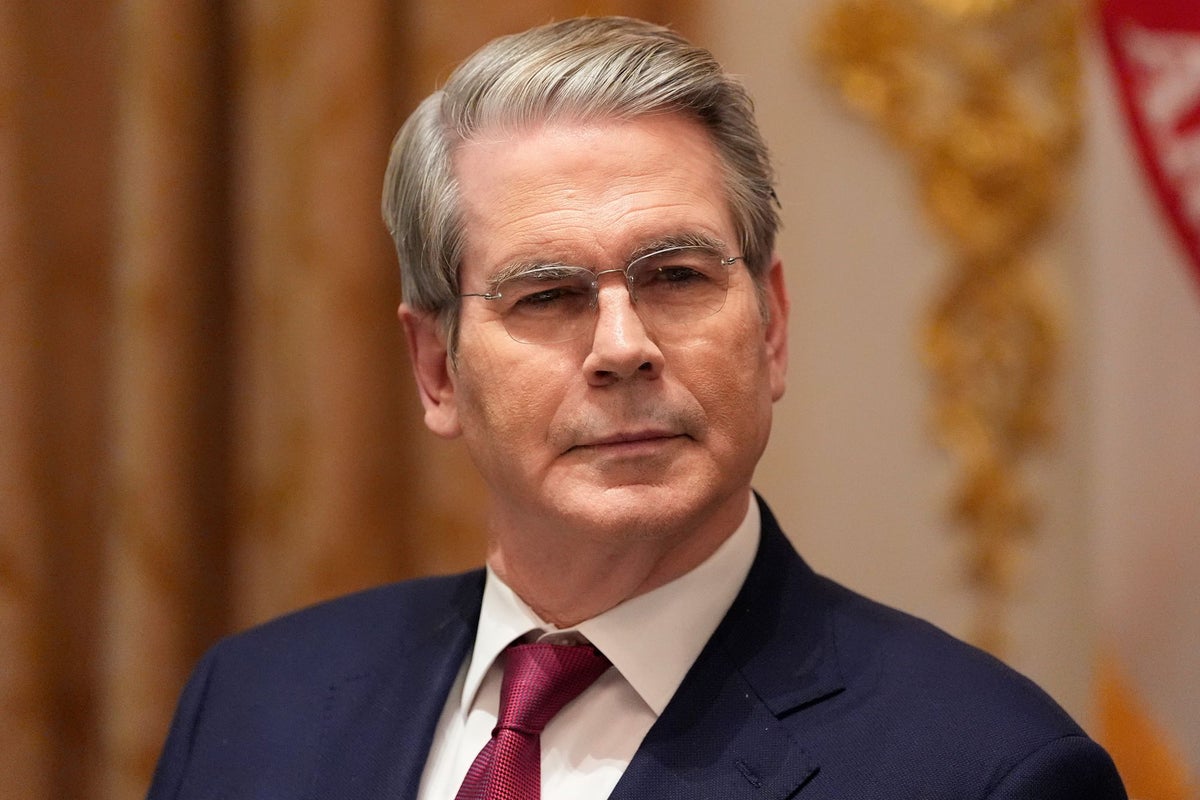Walmart, the largest private employer in the United States, is pausing job offers to foreign-born workers requiring H-1B visas after President Donald Trump raised the fee to $100,000, the company revealed.
H-1B visas allow employers in the U.S. to hire foreign-born workers with specialized knowledge or skills, typically in fields where a college degree is required, for three years, with the option to be renewed for another three years.
According to government data, Walmart ranked 11th among all companies with the most approved and sponsorsed H-1B visas in 2024, with approximately 2,904 – and was the largest among chain retailers. In the first half of 2025, Walmart ranked 9th with 2,390.
But now, the change in visa guidance will impact Walmart’s corporate employees, people familiar with the decision told Bloomberg Tuesday.
“Walmart is committed to hiring and investing in the best talent to serve our customers, while remaining thoughtful about our H-1B hiring approach,” a spokesperson told CNN.

The Independent has asked Walmart for comment.
In September, Trump announced he was hiking the fee for H-1B visas to prevent companies from ‘abusing’ them, which he claims suppresses wages and creates a disadvantageous labor market for American workers.
A majority of H-1B visas are used in technology and computer-related jobs. Approximately 70 percent of H-1B visa holders are Indian citizens.
The percentage of Walmart’s H-1B visa holders comprises a small portion of their U.S. labor force, which is around 1.6 million people – that number includes in-store and corporate employees.
Amazon, Meta, Microsoft and Google top the list of companies that support the largest number of H-1B visa holders.
Previously, employers could pay between $2,000 and $5,000 for an H-1B visa petition. Under the new guidance, employers will have to pay the $100,000 fee when applying on behalf of new applicants who are living outside the U.S.

There are extremely narrow exceptions for employers to circumvent the $100,000 fee. Secretary of Homeland Security Kristi Noem can determine that a foreign-born worker’s presence is of “national interest,” no American worker can fill the role, and the worker doesn’t pose a threat to security, in order to waive the fee.
Economists have argued that H-1B visas “complement” the labor market and give immigrant workers an opportunity to invest in the U.S. economy.
The change in H-1B visa applications is part of Trump’s anti-immigration policies that seek to limit the number of foreign-born workers in the U.S. and remove hundreds of thousands of undocumented immigrants.
The president has also tightened measures around colleges and universities that admit international students, restricted immigration from specific countries, attempted to restrict birthright citizenship, and introduced a new “gold card” program that gives investors a path to citizenship if they invest $1 million in the U.S.




